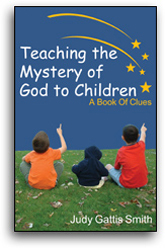SermonStudio
Poetry
Children's Resources
Teaching The Mystery Of God To Children
A Book Of Clues
For some people poetry is a clue to the mystery of God. Just what is poetry? Before looking the word up in a dictionary try for your own definition. One of the best definitions I have ever read is "when words pause." Poetry is just prose broken up in lines so that you will pause as you read it and wonder. Poetry is perhaps, more than anything else, the communication of amazement before the fact of this phenomenal world. Something catches our attention. We pause and in expressing it -- poetry is born.


